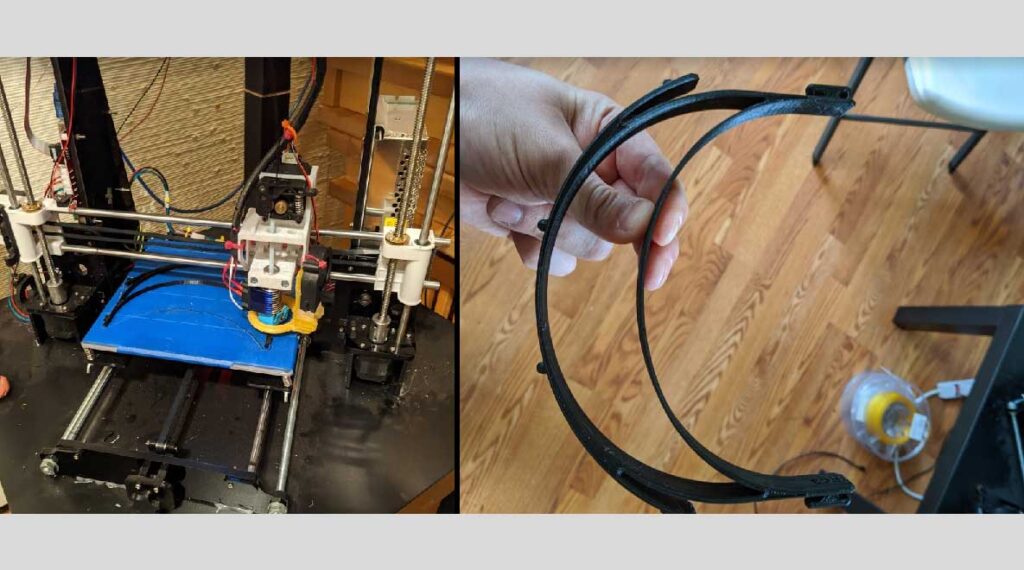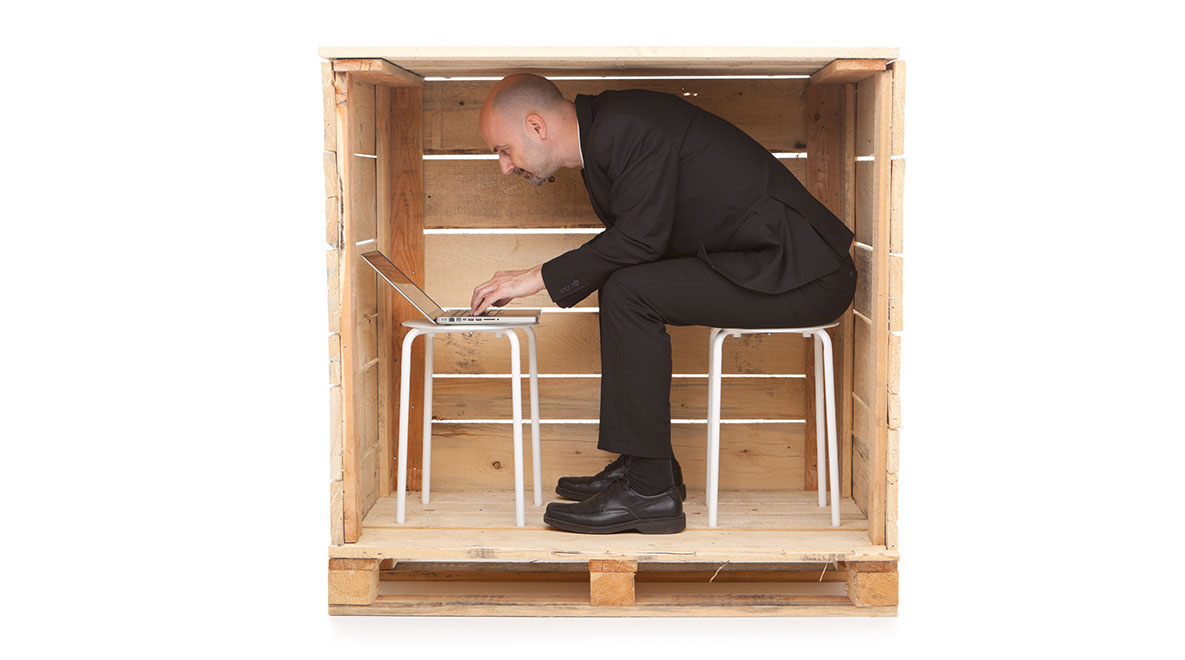Improvise, Adapt, Overcome
It’s unclear how long the current crisis will last but using history as our gauge, we will rely on the innovation, efficiency, and flexibility of people and organizations to bounce back quickly when it’s over.

Last week, my colleague Travis messaged our entire team through Slack about a project he was working on. Travis is part of a community of 3D printing professionals, hobbyists, and supply companies. They’re banding together in an international effort to help print components of medical devices that are critical to healthcare workers on the frontline of the coronavirus crisis.
Prusa, a 3D printing supply house in the Czech Republic, is sharing a design that they’ve been incrementally improving over the last two weeks based on feedback from frontline healthcare workers. They’re also tweaking the design with each iteration to make it faster and easier to print.
Other vendors like MatterHackers are making supplies available at cost or at highly discounted rates and helping to coordinate the response. The rest of the 3D printing community are all contributing what they can. People like Travis with a personal home printer are producing five to six face shield frames per day. Print farms are joining in and contribute hundreds of pieces per day. Then the head piece sets are sent off to a local hub where the face shields themselves are cut, and the entire device is assembled, sanitized, and shipped to a healthcare facility.
The effort has just gotten underway and already the group is producing thousands of face shields with an overall goal of 100,000 to help offset demand.
If you’d like to donate your 3D printing skills or support the cause by donating toward the cost of raw materials and shipping, click here.
Stories like these are everywhere in the news today as people show great empathy for one another and pull together resources and skills to solve common problems – even when they can’t leave their homes.
When the tides shift and things finally return to normal, we’ll rely on that resourcefulness again to quickly get the economy back on track.
Resilience in times of crisis
Whether the crisis is natural or man made, humanity has proven time and again its ability to bounce back. The speed at which recovery can take place is directly correlated to the organization, efficiency, and innovation applied to the problem by governments, businesses, and individuals.
Consider some of the many economic comebacks from the past 100 years. These feats weren’t accomplished overnight, by luck. It took creativity, thoroughness and careful, deliberate planning by many people working toward a common goal.
The Japanese economy was essentially destroyed by the end of WWII in 1945, along with most of its infrastructure and industry. But by 1956, GDP had recovered to a rate higher than it was prior to the war in 1940. The so-called Japanese Miracle was accomplished through an effort led by the Allies to reform politics, economics and social norms. An effort of this magnitude needed careful planning and the participation of people from all walks of life.1
The Japanese recovery benefited, in no small way, from Walter Shewhart’s newly devised Plan, Do, Check, Act process. This process was adopted by many Japanese businesses as a way to purposefully and incrementally improve. The movement would later become Kaizen and would help to accelerate the Japanese economy to even greater heights in the 1980s. What many of us now embrace as Continuous Improvement came to us by virtue of all the businesses and people who sought managed progressive change following a devastating event.2
On the other side of the globe, in 1990, Brazil was about to accomplish another economic miracle. For decades, Brazil was crippled with an inflation crisis that had reached 80% per month. Things were so bad that people would literally rush ahead of the guy putting price tags on items in the grocery store to avoid paying double at check out. Beer manufacturers quit making beer because by the time the beer was brewed, their stock ingredients had increased in price so much that the beer was worth less than the price of the ingredients.
It was at this time when four economists, who had been friends since grad school, resurrected a wild idea they had talked about many years before. The economists presented a plan, to the president of Brazil, to create a virtual currency: the Daily Unidade Real de Valor (URV) or Real Value Unit.
While the general public continued to walk around with pockets full of Cruzeiros, they began to be paid and taxed in URVs. The Cruzeiro continued its decline in value, but the URV was held in place. The government published weekly tables that showed the value of the URV vs. the Cruzeiro. People could see that the URV was more stable and remained flat while the Cruzeiro continued its climb. So, they abandoned it quite willingly and adopted the new currency.
It took four years and a lot of meticulous planning to get an entire population to change its behavior, but that’s how a clever plan, a desperate government, and a willing public made a 40-year inflation disappear practically overnight in 1994 with the creation of the Real.3
There are many harrowing economic stories from around the globe including our own Great Depression and the all too recent Global Recession that illustrate our ability to overcome adversity.
We’re in the early stages of this crisis and the monumental efforts being made to fight it are inspiring. Like Travis’s 3D printing group, people are coming together to help tackle different aspects of the problem:
- Healthcare workers are taking tremendous risk and developing new techniques on the fly to deal with a situation none of them have ever experienced before.4,5
- Tech companies and churches are digging into their stockpiles to find masks.6,7
- Manufacturers are converting from producing beer to hand sanitizer8, from cars to ventilators9, and from DVDs to face shields.10
- Banks are continuing to make their services available in ways that are safe for both employees and customers.11
- Airlines are shifting capacity to shipping instead of passenger travel.12
- Many companies are finding ways to enable their employees to work from home,13 delay debt collection, 14 and offer free services and other resources.15
With responses like these, we’ll surely find a way to weather the storm. But once we’ve beat this thing back, we’ll need to have a plan to help us fight our way out of the economic crisis we’re quickly falling into. That’s what many of us are turning our attention to now.
Thoughts on planning for the coming weeks and months ahead
While every business has different needs and priorities during a crisis, an important common thread across every industry is process knowledge. Who is responsible for what function? What if that person isn’t available? What’s the best way to do work you’ve never done before?
Here are some best practices that we’ve learned from our customers and from 200+ workshops we’ve done with other industry leaders in operations, customer experience, and contingency planning.
Make employees aware of critical knowledge immediately. Directives and policy changes are only as good as their rate of adoption. With a fast-moving problem like this, it’s important to keep employees aware of developments as they happen. But some information is so important that it’s not enough just to tell them. You need to tell them, make sure they heard you, and confirm they understand.
Without those confirmation steps, you run the risk of having your most important notices go unheeded.
Capture process knowledge and make it accessible. Make sure all processes, policies, and procedures required to run your business successfully are written down. Ideally, these should be kept in a digital format that can be accessed while working, so managers standing in for sick or furloughed employees can have instructions with them as they do the work.
Work instructions should be easy to find when needed and there should be no confusion around which version is the right one to use. Incorporating job aids like videos, manuals, and diagrams into work instructions is extremely helpful in executing them – particularly for someone who hasn’t performed the tasks regularly in the past.
Without clear, easy-to-access processes, you increase the amount of time spent understanding what needs to be done and how to do it. You waste resources through errors, and you potentially create situations that are unsafe or legally risky.
Track work as it’s completed. During unprecedented times, when workforces are diminished and managers are bouncing from fire to fire, it’s important that every completed task is tracked. Everyone who jumps in to help should be clear where you are in the process – what’s been completed and what hasn’t.
Without this knowledge, rework and incomplete procedures are a likely scenario that will cost scarce resources and human hours.
What comes next
We will overcome this, but it will likely change the way we live and work for generations to come. Experts say we could see an acceleration in digital technology disruption, stronger domestic supply chains, and fundamental changes to the way some industries are run.16
In the long run, it’s all up to us.
Sources
- Lessons from the Japanese Miracle: Building the Foundations for a New Growth Paradigm
- The History of Kaizen
- This American Life, Episode 423, The Invention of Money: The Lie That Saved Brazil
- Drive-through COVID-19 testing launched by hospitals in parking lots, garages
- Biotech Companies Tap AI to Speed Path to Coronavirus Treatments
- Facebook donates emergency reserve of 720,000 masks due to coronavirus outbreak
- Washington National Cathedral Finds Thousands of N95 Respirator Masks in Its Crypt Level
- Anheuser-Busch Starts Making Hand Sanitizer Alongside Its Beer
- GM and Medical Equipment Maker Prepping to Make 200,000 Ventilators
- How This New Jersey Factory Is Pivoting Its Business To Manufacture Essential Face Shields In Response To COVID-19
- Truist Coronavirus Response
- With Few Willing to Fly, Airliners Are Transforming Into Cargo Planes
- Companies encouraging remote work and travel bans due to coronavirus
- How utility, phone and internet companies are giving consumers a break during coronavirus pandemic
- Getting Bored? Here’s A List Of Free Things That Weren’t Free Before Coronavirus
- Coronavirus Will Change the World Permanently. Here’s How.
Ready to crush your goals?
"*" indicates required fields


